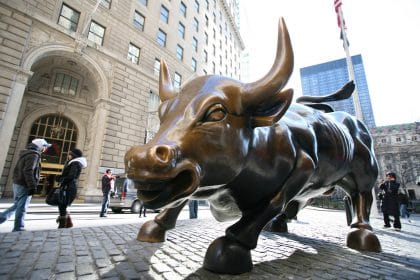The United States is not yet out of the pandemic blues as the stock market dip is being fueled by a slowing economy across the board due to the Omicron fears amongst others.
Tuesday can be considered a bearish day for the United States stock market as a rash dip is hovering over all major indices. The Dow Jones Industrial Average (INDEXDJX: .DJI) dropped 1.51%, losing 543.34 points to 35,368.47 as the tech-heavy Nasdaq Composite (INDEXNASDAQ: .IXIC) plunged 2.60% to 14,506.90. The S&P 500 (INDEXSP: .INX) was not left behind in the bearish plunge as it recorded a 1.84% slip to 4,577.11.
The bearish twist that was introduced into the market can be attributed to a number of factors, one featuring corporate earnings in which big names reported disappointing earnings, and the 2-year Treasury yield, a measure of where the Federal Reserve is likely to place its interest rate as is currently being contemplated, surged more than 1% for the first time since February 2020.
Major rates also soared along the yield curve, with the benchmark 10-year note topping 1.87%, its highest since January 2020. The 10-year yield started this year 2022 around 1.5%.
“The bond market is continuing to price in a more aggressive policy tightening by Federal Reserve based on still-high inflation and the Fed’s more hawkish guidance,” said Kathy Bostjancic, the chief US financial market economist at Oxford Economics. “A fairly aggressive Fed tightening path will lead to somewhat lower valuations as economy-wide growth should slow as the Fed tries to soften the pace of demand.”
The shares of Goldman Sachs Group Inc (NYSE: GS) tumbled 6.98% to $354.40 per share as the banking giant reportedly missed expectations in its latest earnings report. The earnings miss was further compounded by a 23% surge in operating expenses by the financial institution. Microsoft Corporation (NASDAQ: MSFT) also slumped 2.43%, an unexpected dip despite the firm announcing it will acquire game publisher Activision Blizzard for $95.00 per share, in an all-cash transaction valued at $68.7 billion, inclusive of Activision Blizzard’s net cash.
Stock Market Dip Due to Slowing Economy
The United States is not yet out of the pandemic blues as the stock market dip is being fueled by a slowing economy across the board due to the Omicron fears amongst others. Many countries have reintroduced lockdowns and some forms of restrictions to help combat the spread of this variant, and the impact is currently being felt in many areas including the corporate world.
“Recent economic data is further confirming the economy is indeed slowing due to omicron. Retail sales, consumer confidence, industrial production, and the Empire State manufacturing all told a similar story, our economy is slowing and worries are growing,” said Ryan Detrick of LPL Financial. “This isn’t the end of the world though, as we expect any near-term slowdown of output to simply be pushed back to further quarters once the omicron worries subside.”
Many institutions consider 2022 a clean slate to change the direction of their businesses, with the right strategies for most already in place, the Fed’s rate push will be another factor that can make or mar whatever plans that have been programmed.
next